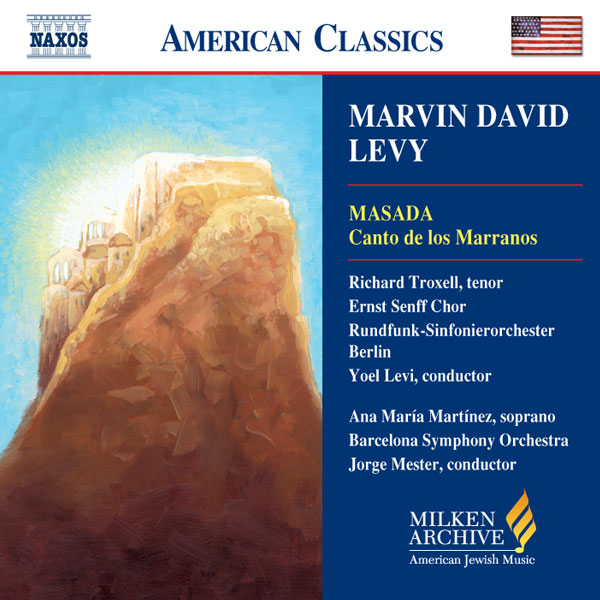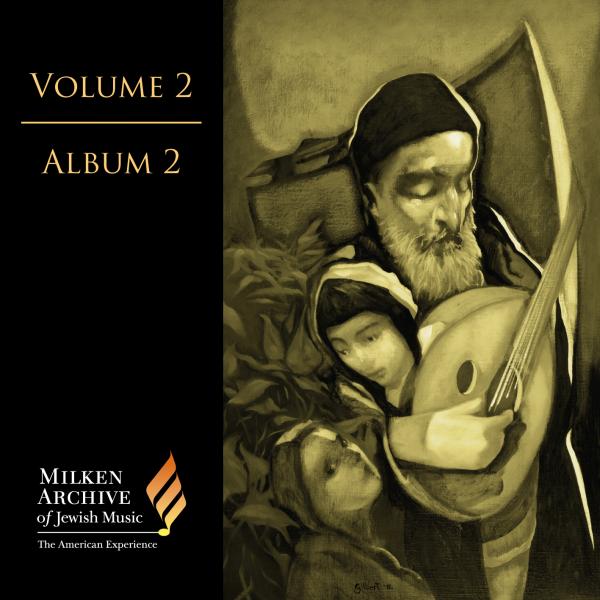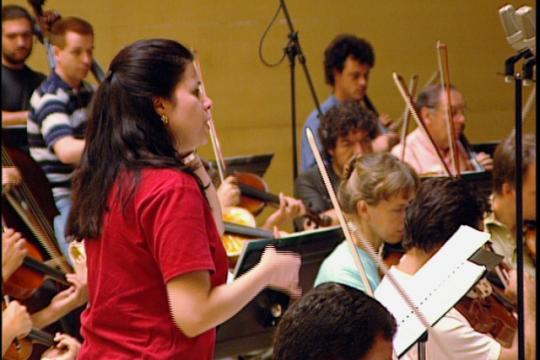Texts adapted, arranged, and translated by the composer from historical sources, from the Christian and Hebrew liturgies, and from Ladino sources.
(SPOKEN):
“Inquisition has been made in the charge that Jews are persuading new Christians to leave their adopted faith and return to their ancient religion. The inquisitors accuse many of the converted of professing Christianity but practicing Judaism secretly. King Ferdinand and Queen Isabella of the Spains, believing great injury has been done to the holy Catholic faith, have issued an edict commanding all Jews and those converted who are found guilty of secretly observing the laws of Moses—the Marranos—depart all their kingdoms and dominions by the end of the month of July of the present year, 1492, under penalty of death.” (quotation from the 1492 expulsion decree)
(SUNG):
Credo in unum Deum, Patrem omnipotentem,
factorem coeli et terrae, visibilium omnium
et invisibilium, et in unum Dominum,
Jesum Christum Filium Dei unigenitum,
et ex Patrem natum ante omnia saecula.
Sanctus, Sanctus, Sanctus,
Domine Deus. Sabaoth...
Enveluto Adonay escojó en nos y todo lashón
nos hizo apartar y santedad de shabat.
Nos hizo heredar todo semen de Ya’acov.
Lo honaremos en dia de shabat.
Quen guarda el shabat el Dio lo guarda
a él para siempre y siempre
el Dio va’ star con él.
Kyrie eleison,
Christe eleison,
Kyrie eleison.
sh’ma yisra’el
adonai eloheinu adonai eḥad.
Respondenos, Dio de Abraham, respondenos.
Respondenos, El que responde en ora ve-luntad,
respondenos. Respondenos, Pavor de Yits’hak.
Respondenos, El que responde
en ora de angustia, respondenos.
Respondenos, Fuerte de Ya’acov,
O Dio de la merkava, O Padre
piadoso y gracioso, repondenos.
Libera me Domine de morte aeterna i
n die illa tremenda. Libera me...
Libera...
Que venga el alto, poderoso e terribile Dios
al justo siervo Suyo, quien vivo fue quemado
por servir a la sancta unidad de Su nombre.
Que lava su sangre con la de sue enemistados
con Su fuerte braco e compense a Sus enemigos
conforme a sus merescimientos.
Haga nos memoria el Rey en
Su misericordia de Sus meritos,
como scripto estaÌ: Regocijaos,
O vosotras naciones, pueblo Suyos,
pues lavara El la sangre de Sus virtuosos
e les pondraÌ temor a Sus adversarios
e absolvera la tierra e Su pueblo.
yitgaddal v’yitkaddash sh’me rabba.
Bendicho Su nombre del Señor del mundo!
Bendicha Tu corona y Tu lugar! Sea Tu veluntad
con Tu pueblo Yisrael para siempre y rezgata
de Tu derecha. Amostra a Tu pueblo en casa
de Tu santedad para suntraer a nos de buendad
de Tu claridad y por recivir nuestras tefilot
con piadades. Sea veluntad delantre
de Tu que alargues a nos vidas con bien.
Y para ser yo Tu siervo contado entre los
justos por apidar sovre mi y lo que
a Tu pueblo Yisrael. Tu sos que mantienes
a todos y governas a todos.
Tu sos que podestas sovre
lo todo y el reina de Tuyo es.
Salvame, O Padre, salvame!
In memoria aeterna...
Requiem aeternum dona eis, Domine.
Requiem aeternum...
Amen...
Bendicho su nombre...Amen.


